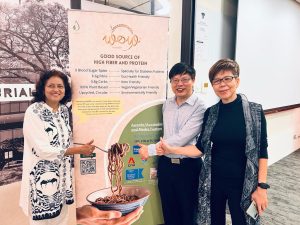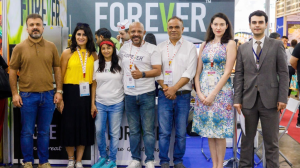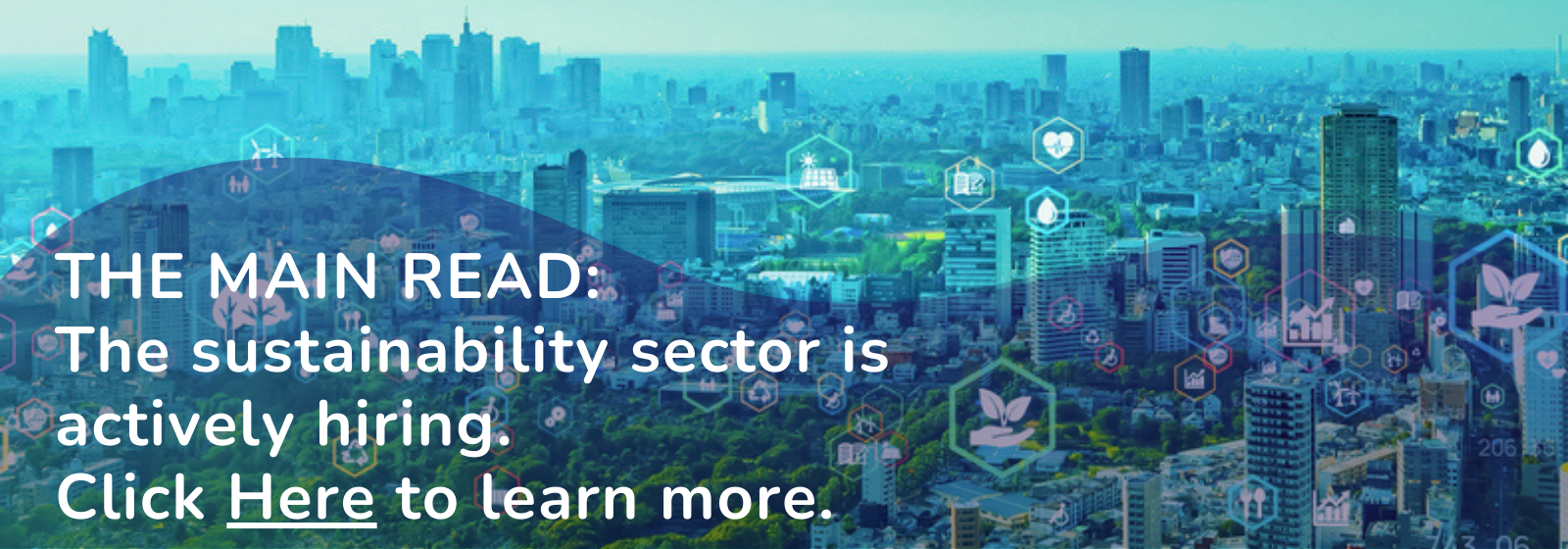With sustainability being a popular buzzword today, there’s never been a better time to join the industry.
But what happens if you don’t have the necessary qualifications to enter the field?
Can you still do it? How can you do it if you want to?
Myths about the sustainability industry: true or false?
Let’s first get the myths out of the way.
Some people think you need an environmental engineering degree or equivalent qualification to enter the field of sustainability. Whilst that can help, it may not always be the case.
In fact, every company needs people from different backgrounds and experiences to contribute unique views towards solving multi-faceted problems.
In David Epstein’s book ‘Range’, he found that those who were able to draw knowledge from a variety of domains ended up being the ones coming up with unique insights to tackle challenges at work.
In 2001, Alph Bingham, who was then working at Eli Lilly (a chemical manufacturer), came up with a list of 21 problems that their top scientists had been stuck on. He proposed to share it with the public to see if any solutions came up.
Surprise, surprise – there were.
One of the problems that had hindered top scientists with PhDs and years of experience in chemistry research ended up being solved by a lawyer -
A lawyer with a background in chemical patent application.
This ‘outside-in’ thinking, where solutions are found in experiences far outside of focused training, is why you can be an asset even with no experience or expertise in sustainability. It may just give you a unique insight that no one else has considered before.
Until a decade ago, sustainability was not as widely focused on.
The challenges faced in sustainability are ‘wicked’ problems, which psychologist Robin Horgarth frames as problems with no simple solution, because the precise nature of the problem cannot be defined.
If you’re interested in joining the field of sustainability, simply being open to applying may be the first step.
Employers are open to hiring those with no experience

This practice of hiring staff, even those without direct experience, has served companies like KosmodeHealth well.
KosmodeHealth is a deep tech startup that upvalues spent barley grains, a by-product of beer manufacturing, into better foods. For example, with spent barley grains, which would normally be thrown away, KosmodeHealth eventually made W0W Noodles, which only have 0.8g of carbs.
This has made it suitable for diabetics, who have often found it difficult to enjoy their carbohydrates.
Seeing the challenges in hiring, KosmodeHealth hired students like Han Xin Ying, who is currently an SIT student in a gap year.
They have also hired others like Dennis Foo, who was originally from the manufacturing industry, through the Career Conversion Programme by WSG.
To onboard them smoothly, Florence Leong, the cofounder of KosmodeHealth, rapidly introduced them to different job functions in the first three months to give them a holistic perspective of the entire business.
Considering a career in sustainability? Take our quiz to find out if it’s right for you!
Starting earlier with small projects
You might be a young student today thinking about whether you can embark on a career in sustainability and whether it is even worth devoting so much attention and time.
One way to give it a trial run is by running a project through avenues like sustainability hackathons.

In early April 2023, Shandi Global, a plant-based meat manufacturer in Singapore, sponsored the Young Trailblazers competition, which brings together students in post-secondary education institutes to ‘hack for public good’.
At this competition, students from Junior Colleges, polytechnics and the Institute of Technical Education came up with innovative ideas to build a more sustainable world.
From sustainability devices to better monitoring of agriculture to ‘sustainability subscription boxes’ that introduce better ways to consume food, these youths were reimagining what a more sustainable future would look like.
Projects like these can be a good way to find out if your interests and strengths lie in the field of sustainability.
Rather than committing yourself to a job, only to realise that you don’t like it, small project competitions where you build prototypes and present your ideas can eventually help you determine your fit to this industry.
Ultimately, it’s about what you’re good at
We know the common narrative is that if you ‘figure out your passion’, you will know what you want to do.
This advice assumes that as long as you ‘feel great’ about what you do, you will be fine.
That’s not necessarily true.
Passion is an emotion, and emotions can change. In his book ‘So Good They Can’t Ignore You’, author Cal Newport studied the ‘passion hypothesis’ and sought to find out if finding and working on your passion would make you happier.
It didn’t.
He found that some people were unhappier because they were constantly switching in and out of different careers whenever they felt that they didn’t like it anymore.
Instead, he discovered that those who anchored themselves to their strengths often built great skills and even greater job satisfaction.
He wrote:
To get good jobs, you first have to get good.
Indeed, today, rather than asking yourself whether you are passionate about the sustainability industry, it might be better to ask yourself:
What am I good at?
Personability tests like Strengthsfinder could help. But look back at your own projects and ask yourself:
- What have you been best at?
- What do people around you say you are good at?
- What do others say is unique about you that no one else can do as easily?
Looking at your strengths, and starting from there, can help you better figure out if sustainability is a place where you can succeed.
This article is contributed by Live Young and Well.
















